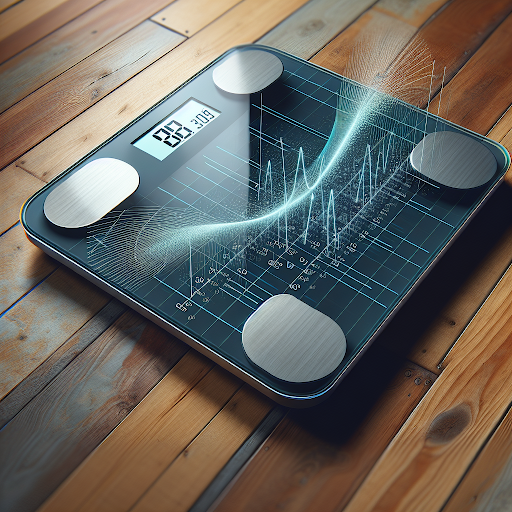Smart Scales: Accurate Weight, Fuzzy Fat
The Truth About Smart Scales: What They Can (and Can't) Tell You About Your Body
Standing on a bathroom scale used to be simple. You'd step on, check the number, and either smile or sigh. Today's smart scales promise to reveal everything from your body fat percentage to your metabolic age—all from a quick barefoot stand. But as these devices multiply in bathrooms worldwide, a crucial question emerges: can we actually trust what they're telling us?
The Weight We Can Trust
Let's start with the good news. When it comes to measuring your weight—the fundamental metric we've relied on scales for since their invention—smart scales deliver impressively accurate results. Modern smart scales rival the precision of those hefty clinical scales at your doctor's office, often featuring sophisticated technology like auto-calibration, gravity compensation, and position control to ensure accuracy.
This reliability in weight measurement makes smart scales valuable tools for anyone tracking their health journey. Whether you're monitoring weight loss progress, maintaining your current weight, or working with healthcare providers for remote patient monitoring, you can generally trust that morning number staring back at you.
Where Things Get Complicated
Here's where the story takes a turn. While smart scales excel at weight measurement, their ability to accurately measure body composition—those percentages of fat, muscle, water, and bone mass—becomes significantly less reliable.
Most smart scales use a technology called bioelectrical impedance analysis (BIA). In simple terms, they send a tiny, imperceptible electrical current through your body and measure the resistance. Since different tissues conduct electricity differently (muscle contains more water and conducts better than fat), the scale attempts to calculate your body composition.
The challenge? This technology is surprisingly sensitive to variables that have nothing to do with your actual body composition. Had an extra glass of water before bed? Your body fat percentage might read lower. Slightly damp feet from your morning shower? The readings could shift. Even standing with your feet positioned differently than yesterday can alter the results.
The DEXA Difference
To understand just how approximate these body composition measurements are, consider the gold standard: DEXA scans. These medical-grade dual-energy X-ray absorptiometry scans provide highly precise body composition data that researchers and medical professionals trust. When compared to DEXA results, smart scale body composition readings often show significant variations—sometimes off by several percentage points.
This doesn't mean smart scales are worthless for body composition tracking. Rather, it means we need to adjust our expectations and understanding of what these devices actually offer.
The Power of Trends Over Truth
Here's the paradox that makes smart scales surprisingly useful despite their limitations: while they may not be perfectly accurate, they are remarkably precise. In measurement terms, accuracy means hitting the true value, while precision means getting consistent results.
Think of it like a dart board. An accurate thrower hits the bullseye. A precise thrower might hit the same spot on the outer ring every time. Smart scales for body composition are like that precise dart thrower—they might not hit the exact truth, but they consistently hit the same relative spot.
This precision makes smart scales excellent for tracking trends over time. If your scale says you're at 25% body fat when you're actually at 22%, that three-percent error matters less than whether the scale shows you moving from 25% to 23% over several months. The direction and magnitude of change remain meaningful, even if the absolute numbers don't.
Maximizing Your Smart Scale's Potential
To get the most reliable data from your smart scale, consistency is key. Here's how to create optimal conditions for measurement:
Time it right: Weigh yourself at the same time each day, ideally first thing in the morning before eating or exercising. Your body's hydration and food content fluctuate throughout the day, affecting readings.
Prepare the surface: Place your scale on a flat, hard surface—not carpet or uneven tiles. This ensures the weight sensors function properly.
Stand correctly: Step on barefoot (socks interfere with BIA), and follow your scale's specific foot placement guidelines. Some models like the Withings Body Scan are particularly sensitive to positioning.
Stay still: Movement during measurement can cause errors, especially for advanced metrics. Stand naturally and breathe normally.
Track patterns, not points: Focus on weekly or monthly trends rather than daily fluctuations. Your weight and body composition naturally vary day to day.
The Bottom Line on Smart Scales
Smart scales occupy a fascinating middle ground in health technology. They're far more accessible and convenient than professional body composition assessments, yet more sophisticated than traditional scales. They won't replace a DEXA scan or professional medical evaluation, but they don't need to.
What smart scales offer is something arguably more valuable for most people: an easy, consistent way to monitor changes in your body over time. They transform the daily weigh-in from a simple number check into a comprehensive health checkpoint, providing motivation and accountability for lifestyle changes.
The key is understanding their limitations while leveraging their strengths. Use them as tools for observing trends, celebrating progress, and staying engaged with your health goals. Just remember that those body fat percentages and muscle mass readings are educated estimates, not medical diagnoses.
Your Smart Scale Journey
As we navigate an increasingly quantified world of health metrics and biometric data, smart scales represent both the promise and the pitfalls of consumer health technology. They democratize access to body composition insights while requiring us to be savvy consumers of that information.
The next time you step on your smart scale, remember: the weight measurement you can trust, the body composition trends you can track, but the absolute body composition numbers you should take with a grain of salt.
What's your experience with smart scales? Have you noticed inconsistencies in body composition readings, or have they helped you achieve your health goals? Share your smart scale stories in the comments below—let's learn from each other's journeys toward better health.




